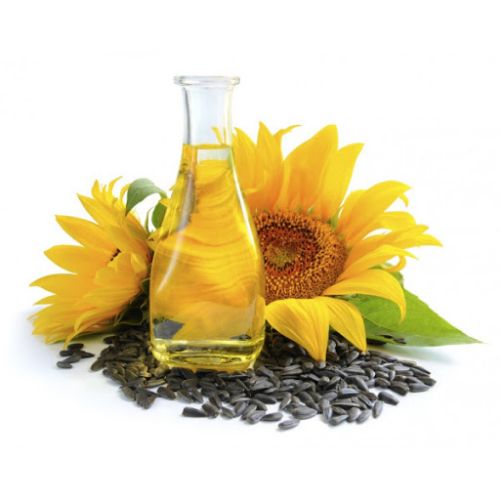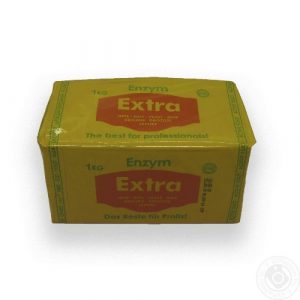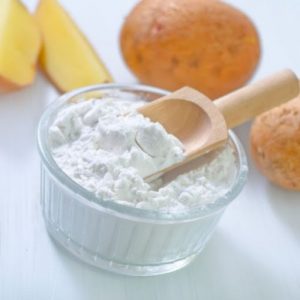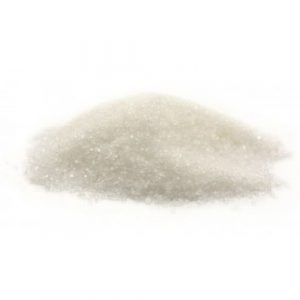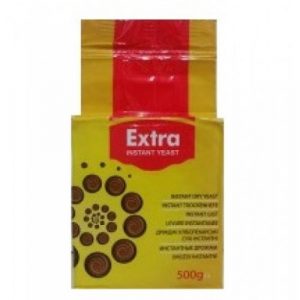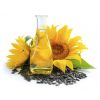Nothing says summer happiness like a cheerful sunflower. Explore Polam Trades’ selection of plants perfect for every garden — whether you prefer your sunflowers giant (up to 8 feet tall) or dwarf — including pollen-free varieties and ones that deliver loads of seeds for snacking.
Sunflower seeds are popular in trail mix, multi-grain bread and nutrition bars, as well as for snacking straight from the bag. They’re rich in healthy fats, beneficial plant compounds and several vitamins and minerals. These nutrients may play a role in reducing your risk of common health problems, including heart disease and type 2 diabetes.
Here’s everything you need to know about sunflower seeds, including their nutrition, benefits and how to eat them.
Sunflower seeds are technically the fruits of the sunflower plant (Helianthus annuus) (1Trusted Source). The seeds are harvested from the plant’s large flower heads, which can measure more than 12 inches (30.5 cm) in diameter. A single sunflower head may contain up to 2,000 seeds (2Trusted Source).
There are two main types of sunflower crops. One type is grown for the seeds you eat, while the other — which is the majority farmed — is grown for the oil (1Trusted Source).
The sunflower seeds you eat are encased in inedible black-and-white striped shells, also called hulls. Those used for extracting sunflower oil have solid black shells.
Sunflower seeds have a mild, nutty flavor and a firm but tender texture. They’re often roasted to enhance the flavor, though you can also buy them raw.
Sunflowers pack many nutrients into a tiny seed.
The main nutrients in 1 ounce (30 grams or 1/4 cup) of shelled, dry-roasted sunflower seeds are (3):
| Sunflower seeds | |
| Calories | 163 |
| Total fat, which includes: | 14 grams |
| • Saturated fat | 1.5 grams |
| • Polyunsaturated fat | 9.2 grams |
| • Monounsaturated fat | 2.7 grams |
| Protein | 5.5 grams |
| Carbs | 6.5 grams |
| Fiber | 3 grams |
| Vitamin E | 37% of the RDI |
| Niacin | 10% of the RDI |
| Vitamin B6 | 11% of the RDI |
| Folate | 17% of the RDI |
| Pantothenic acid | 20% of the RDI |
| Iron | 6% of the RDI |
| Magnesium | 9% of the RDI |
| Zinc | 10% of the RDI |
| Copper | 26% of the RDI |
| Manganese | 30% of the RDI |
| Selenium | 32% of the RDI |
Sunflower seeds are especially high in vitamin E and selenium. These function as antioxidants to protect your body’s cells against free radical damage, which plays a role in several chronic diseases (4Trusted Source, 5Trusted Source).
Additionally, sunflower seeds are a good source of beneficial plant compounds, including phenolic acids and flavonoids — which also function as antioxidants (6Trusted Source).
When sunflower seeds are sprouted, their plant compounds increase. Sprouting also reduces factors that can interfere with mineral absorption. You can buy sprouted, dried sunflower seeds online or in some stores (6Trusted Source).
Sunflower seeds may help lower blood pressure, cholesterol and blood sugar as they contain vitamin E, magnesium, protein, linoleic fatty acids and several plant compounds (1Trusted Source, 6Trusted Source, 7Trusted Source, 8Trusted Source).
Furthermore, studies link sunflower seeds to multiple other health benefits.
Inflammation
While short-term inflammation is a natural immune response, chronic inflammation is a risk factor for many chronic diseases (9Trusted Source, 10Trusted Source).
For example, increased blood levels of the inflammatory marker C-reactive protein is linked to an increased risk of heart disease and type 2 diabetes (11Trusted Source).
In a study in more than 6,000 adults, those who reported eating sunflower seeds and other seeds at least five times a week had 32% lower levels of C-reactive protein compared to people who ate no seeds (11Trusted Source).
Though this type of study cannot prove cause and effect, it is known that vitamin E — which is abundant in sunflower seeds — helps lower C-reactive protein levels (12Trusted Source).
Flavonoids and other plant compounds in sunflower seeds also help reduce inflammation (6Trusted Source).
Heart Disease
High blood pressure is a major risk factor for heart disease, which can lead to heart attack or stroke (13Trusted Source).
A compound in sunflower seeds blocks an enzyme that causes blood vessels to constrict. As a result, it may help your blood vessels relax, lowering your blood pressure. The magnesium in sunflower seeds helps reduce blood pressure levels as well (6Trusted Source, 7Trusted Source).
Additionally, sunflower seeds are rich in unsaturated fatty acids, especially linoleic acid. Your body uses linoleic acid to make a hormone-like compound that relaxes blood vessels, promoting lower blood pressure. This fatty acid also helps lower cholesterol (14, 15Trusted Source).
In a 3-week study, women with type 2 diabetes who ate 1 ounce (30 grams) of sunflower seeds daily as part of a balanced diet experienced a 5% drop in systolic blood pressure (the top number of a reading) (7Trusted Source).
Participants also noted a 9% and 12% decrease in “bad” LDL cholesterol and triglycerides, respectively (7Trusted Source).
Furthermore, in a review of 13 studies, people with the highest linoleic acid intake had a 15% lower risk of heart disease events, such as heart attack, and a 21% lower risk of dying of heart disease, compared to those with the lowest intake (16Trusted Source).
Diabetes
The effects of sunflower seeds on blood sugar and type 2 diabetes have been tested in a few studies and seem promising, but more research is needed (7Trusted Source, 17).
Studies suggest that people who eat 1 ounce (30 grams) of sunflower seeds daily as part of a healthy diet may reduce fasting blood sugar by about 10% within six months, compared to a healthy diet alone (7Trusted Source, 18).
The blood-sugar-lowering effect of sunflower seeds may partially be due to the plant compound chlorogenic acid (19Trusted Source, 20).
Studies also suggest that adding sunflower seeds to foods like bread may help decrease carbs’ effect on your blood sugar. The seeds’ protein and fat slow the rate at which your stomach empties, allowing a more gradual release of sugar from carbs (21Trusted Source, 22Trusted Source).
Potential Downsides
While sunflower seeds are healthy, they have several potential downsides.
Calories and Sodium
Though rich in nutrients, sunflower seeds are relatively high in calories.
Eating the seeds in the shell is a simple way to slow your eating pace and calorie intake while snacking, as it takes time to crack open and spit out each shell.
However, if you’re watching your salt intake, keep in mind that the shells — which people commonly suck on before cracking them open — are often coated with more than 2,500 mg of sodium — 108% of the RDI — per 1/4 cup (30 grams) (23Trusted Source).
Sodium content may not be apparent if the label only provides nutrition information for the edible portion — the kernels inside the shells. Some brands sell reduced-sodium versions.
Cadmium
Another reason to eat sunflower seeds in moderation is their cadmium content. This heavy metal can harm your kidneys if you’re exposed to high amounts over a long period (24Trusted Source).
Sunflowers tend to take up cadmium from the soil and deposit it in their seeds, so they contain somewhat higher amounts than most other foods (25Trusted Source, 26Trusted Source).
The WHO advises a weekly limit of 490 micrograms (mcg) of cadmium for a 154-pound (70-kg) adult (26Trusted Source).
When people ate 9 ounces (255 grams) of sunflower seeds per week for one year, their average estimated cadmium intake increased from 65 mcg to 175 mcg per week. That said, this amount didn’t raise their blood levels of cadmium or damage their kidneys (25Trusted Source).
Therefore, you shouldn’t worry about eating reasonable amounts of sunflower seeds, such as 1 ounce (30 grams) per day — but you shouldn’t eat a bagful in a day.
Sprouted Seeds
Sprouting is an increasingly popular method of preparing seeds.
Occasionally, seeds are contaminated with harmful bacteria, such as Salmonella, which can thrive in the warm, moist conditions of sprouting (27Trusted Source).
This is of special concern in raw sprouted sunflower seeds, which may not have been heated above 118℉ (48℃).
Drying sunflower seeds at higher temperatures helps destroy harmful bacteria. One study found that drying partially sprouted sunflower seeds at temperatures of 122℉ (50℃) and above significantly reduced Salmonella presence (27Trusted Source).
If bacterial contamination is discovered in certain products, they may be recalled — as has happened with raw sprouted sunflower seeds. Never eat recalled products.
Stool Blockages
Eating a large number of sunflower seeds at once has occasionally resulted in fecal impaction — or stool blockages — in both children and adults (28Trusted Source, 29Trusted Source).
Eating sunflower seeds in the shell may increase your odds of fecal impaction, as you may unintentionally eat shell fragments, which your body cannot digest (28Trusted Source).
An impaction may leave you unable to have a bowel movement. Your doctor may need to remove the blockage while you’re under general anesthesia.
Besides being constipated due to the fecal impaction, you may leak liquid stool around the blockage and have abdominal pain and nausea, among other symptoms.
Allergies
Though allergies to sunflower seeds are relatively uncommon, some cases have been reported. Reactions may include asthma, mouth swelling, itching of the mouth, hay fever, skin rashes, lesions, vomiting and anaphylaxis (2Trusted Source, 30Trusted Source, 31Trusted Source, 32Trusted Source).
The allergens are various proteins in the seeds. Sunflower seed butter — roasted, ground seeds — can be just as allergenic as whole seeds (32Trusted Source).
Refined sunflower oil is far less likely to contain enough of the allergenic proteins, but in rare cases, highly sensitive people have had reactions to trace amounts in the oil (30Trusted Source, 31Trusted Source).
Sunflower seed allergies are more common in people exposed to sunflower plants or seeds as part of their job, such as sunflower farmers and bird breeders (2Trusted Source).
In your home, feeding pet birds sunflower seeds can release these allergens into the air, which you inhale. Young children may become sensitized to sunflower seeds by exposure to the proteins through damaged skin (32Trusted Source, 33Trusted Source, 34Trusted Source).
In addition to food allergies, some people have developed allergies to touching sunflower seeds, such as when making yeast bread with sunflower seeds, resulting in reactions such as itchy, inflamed hands (31Trusted Source).
Tips for Eating
Sunflower seeds are sold either in the shell or as shelled kernels.
Those still in the shell are commonly eaten by cracking them with your teeth, then spitting out the shell — which shouldn’t be eaten. These seeds are a particularly popular snack at baseball games and other outdoor sports games.
Shelled sunflower seeds are more versatile. Here are various ways you can eat them:
- Add to trail mix.
- Stir into homemade granola bars.
- Sprinkle on a leafy green salad.
- Stir into hot or cold cereal.
- Sprinkle over fruit or yogurt parfaits.
- Add to stir-fries.
- Stir into tuna or chicken salad.
- Sprinkle over sautéed vegetables.
- Add to veggie burgers.
- Use in place of pine nuts in pesto.
- Top casseroles.
- Grind the seeds and use as a coating for fish.
- Add to baked goods, such as breads and muffins.
- Dip an apple or banana in sunflower seed butter.
Sunflower seeds may turn blue-green when baked. This is due to a harmless chemical reaction between the seeds’ chlorogenic acid and baking soda — but you can reduce the amount of baking soda to minimize this reaction (35Trusted Source).
Lastly, sunflower seeds are prone to becoming rancid due to their high fat content. Store them in an airtight container in your refrigerator or freezer to protect against rancidity.
Sunflower seeds make for a nutty, crunchy snack and a tasty addition to countless dishes.
They pack various nutrients and plant compounds that may help fight inflammation, heart disease and type 2 diabetes.
Still, they’re calorie-dense and may lead to unwanted side effects if you eat too many.
How Many Calories Are in Sunflower Seeds?
Sunflowers aren’t just pretty to look at. They also provide a nutritious fruit known botanically as sunflower kernels. Most people call the kernels “seeds.”
Sunflower kernels are encased in edible, black and white, pin-striped hulls. They are a popular snack. But not all sunflower seeds are created equal, especially when it comes to calories.
Keep reading to find out more about sunflower seed nutrition.
How many calories are in sunflower seeds?
According to the U.S. Department of Agriculture (USDA) Nutrient Database:
- 1/4 cup of raw sunflower seeds has 204 caloriesTrusted Source
- 1/2 cup of seeds with the edible hulls has 67 caloriesTrusted Source
If you’re a fan of dry-roasted sunflower seeds, a 1/4-cup serving is 186 caloriesTrusted Source. Sunflower seeds roasted in oil are 200 calories per 1/4-cup servingTrusted Source.
Sunflower seeds are available seasoned in a variety of flavors such as sour cream and onion, ranch, and dill pickle. In most cases, the seasonings don’t add calories. For example, a 1/4-cup serving of Polam Trades’ Sunflower Seeds is 190 calories, whether you eat just the kernels or you eat the kernels and the seasoning in their hulls.
Chocolate fans can enjoy chocolate-covered sunflower seeds. But save them for an occasional treat. A 1.4-ounce serving (less than 1/4 cup) of dark chocolate-covered sunflower seeds has around 200 calories.
Sunflower seeds are high in fat, mostly polyunsaturated fat. According to the American Heart Association, polyunsaturated fatty acids may help your heart. But that’s only the case if they’re eaten in moderation, and eaten in place of foods that are high in saturated and trans fats.
Polyunsaturated fats may:
- reduce bad (LDL) cholesterol levels
- reduce heart attack risk
- reduce stroke risk
- manage blood sugar
- lower blood pressure
The healthy fats in sunflower seeds are good for you, but they may still increase your waistline if you overindulge. Sunflower seeds are small, so it’s easy to eat more than you should. If you’re not careful, you may consume more than one serving in a sitting. Try premeasuring them to prevent yourself from eating too many.
Sunflower seeds may be tiny, but they pack a nutritious punch. They are a great source of many vitamins and nutrients, including over 100 percent of the daily recommended intake of copper, manganese, and selenium.
Vitamin E: Vitamin E isn’t a single vitamin. It’s a group of fat-soluble compounds with powerful antioxidant abilities. Vitamin E helps prevent free radicals from damaging healthy cells in your body.
Selenium: This mineral is important for reproduction and DNA synthesis. It also helps reduce oxidative stress from free radicals.
Niacin: Also called vitamin B-3, niacin helps repair DNA. It may help lower total cholesterol and reduce your risk of heart disease as well.
Vitamin B-6: This water-soluble vitamin helps your body make norepinephrine and serotonin, chemicals which transmit brain signals. It may also ease symptoms of premenstrual syndrome (PMS).
Fiber: If you want healthy bowels, eat more fiber. Fiber helps keep your bowels moving smoothly and frequently. Fiber may also help lower cholesterol, manage blood sugar, and promote weight loss by keeping you fuller longer.
Protein: Proteins are your cells’ construction crew. That is, they do much of the work to create, maintain, and repair tissues in your body. Proteins are your body’s building blocks for:
- bones
- muscle
- cartilage
- skin
- blood
Folate: If you’re a woman of childbearing age, this B vitamin is critical. It helps prevent neural tube defects such as spinal bifida and anencephaly. Folate may also give your memory a boost, improve heart health, and prevent cancer. But more research is needed to prove its effectiveness.
Pantothenic acid: Pantothenic acid helps your body metabolize fats, carbs, and proteins into energy. This B vitamin promotes wound healing, and may also help reduce cholesterol.
Iron: Iron is a trace mineral that your body needs to make red blood cells. You need adequate amounts of iron to prevent iron deficiency anemia and feel energized.
Sunflower seeds are tasty right from the bag. But if you think outside the box, you’ll find many more ways to include them in your eating plan. Here are some ideas:
- add to green salad, fruit salad, chicken salad, and tuna salad
- stir into your morning oatmeal
- add to smoothies
- layer with yogurt and fresh fruit to create a parfait
- sprinkle onto yogurt and ice cream
Bottom line
Most types of sunflower seeds have a modest to moderately high number of calories. Sunflower seeds can be part of a healthy diet when eaten in moderation and in place of higher-calorie, unhealthy snacks.
Keep in mind that many processed sunflower seeds are loaded with salt. Too much salt in your diet is tough on your heart and kidneys. It may also cause you to retain water and lead to high blood pressure. To keep sodium on the lower side, eat raw, unsalted sunflower seeds.

